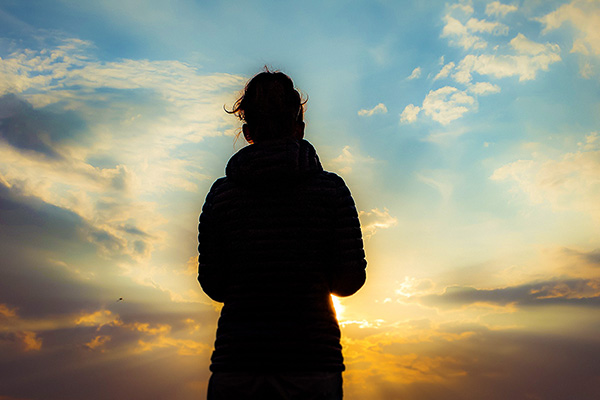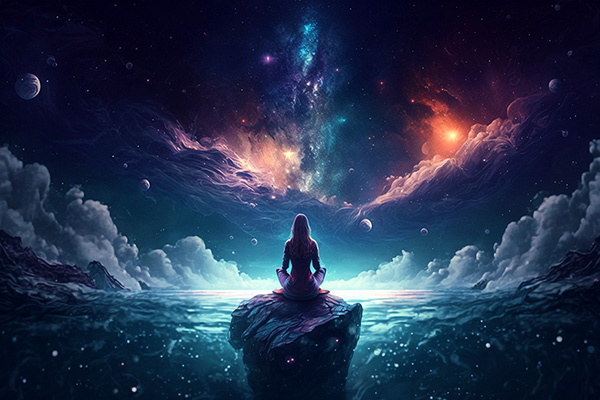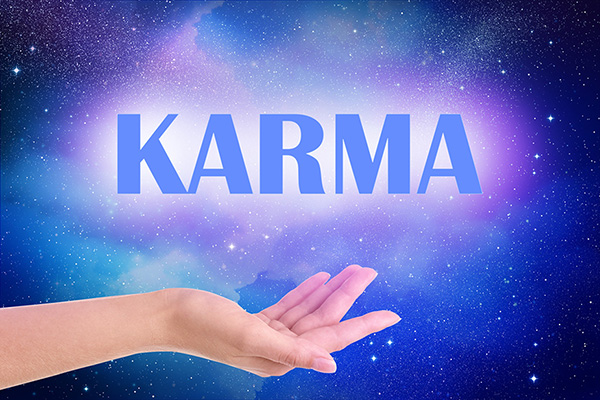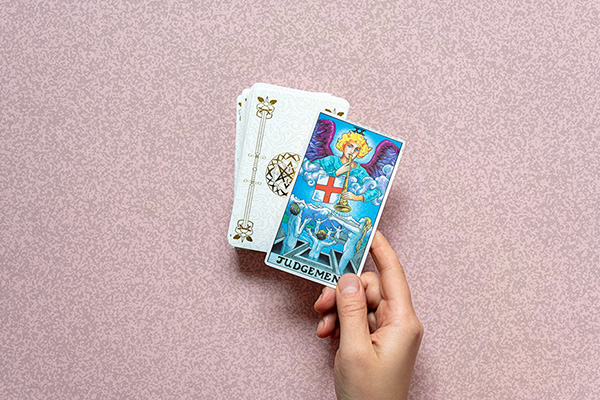karmic responsibility
Our Choices Are Ours To Make
 The past few years have been challenging for everyone. The pandemic, political upheaval, and economic uncertainty have affected lives all over the world.
The past few years have been challenging for everyone. The pandemic, political upheaval, and economic uncertainty have affected lives all over the world.
I have personally witnessed the pain and struggles of many people close to me, as well as my clients.
I even had to take a ‘mental vacation’ at times as I began to feel disoriented and somewhat confused by the messages the angels were giving me.
I asked the why’s with no clear answers. I’ve asked the how’s without sensible explanations. As a lightworker I tend to feel compelled to fix things, to make things better.
Then one day I had a breakthrough when spirit told me clearly that it is not my job to fix everything and everyone.
Spirit has led me to understand that my job is to spread love, light and healing to the best of my ability. How people choose to think, feel and act in response to their life challenges is not for me or anyone else to try to control. Everyone’s choices are theirs to make as they see fit, and with much choice comes much responsibility.
As heartbreaking and frustrating as it may be at times, it is not my place to interfere with other people’s karmic journey and soul plan. This newfound insight was jarringly confirmed by a traumatic event just a few weeks ago.
Spiritual Growth Without Judgment Or Guilt
 I recently had a nasty fight with my ex-husband that was definitely not in line with the spiritual values and principles I teach my clients. Afterwards, I felt very defeated and disappointed in myself for not practicing what I preach.
I recently had a nasty fight with my ex-husband that was definitely not in line with the spiritual values and principles I teach my clients. Afterwards, I felt very defeated and disappointed in myself for not practicing what I preach.
But then Spirit whispered in my ear.
“It’s okay not to be perfect all the time. Sometimes you need to let the toxic air out of your human ego balloon.”
Upon further reflection, I was reminded that we are all spirit beings in human form, which automatically means we are limited and fallible. No one is perfect in this world.
After all, we have signed up for a very challenging physical adventure in this lifetime, which means we all have problems from time to time and we all make mistakes. That is how we learn and grow. In fact, one of the least spiritual things we can do is pretend we’re perfect.
Sometimes we need to let off steam by releasing pent-up negative energies that tend to build up in our auras as we navigate the ups and downs and many frustrations of our daily human existence. Yes, indeed, there are times when we need to go ahead and just beat the heck out of our ego piñata to get rid of some bad juju! When we release these unwanted energies, we detoxify our energy field to live a more abundant and fulfilling life.
Staying Connected To Spirit
 If you are like me, I sometimes find it a struggle to disconnect from the ego in order to commune with spirit, Being spiritually aware and connected is a state of higher consciousness I prefer to spend as much time in as humanly possible.
If you are like me, I sometimes find it a struggle to disconnect from the ego in order to commune with spirit, Being spiritually aware and connected is a state of higher consciousness I prefer to spend as much time in as humanly possible.
Wouldn’t it be absolutely wonderful if we were always fully connected to spirit? Life is so much better and easier when my heart and mind are in the wonderful world of spirit.
Of course, it is not entirely practical or wise to always be in a higher state of consciousness, but one can certainly strive to spend more time living spiritually connected.
What I have learned to be extremely important is the practice of gratitude. Every day I try to consciously revel in all that is good and blessed in my life, instead of bringing myself down by focusing on what is wrong or lacking. We always have much more to be thankful for than we care to admit.
Another commitment I have made is to constantly remind myself that I am part of something greater than myself and connected to everyone and everything in the universe. This is not only a privilege, but also a responsibility. Regardless of how I feel on any given day, I am a spiritual being in human form who has the wonderful ability to choose the better side of myself and not let the ego take over.
I also know from experience that in order to stay spiritually connected, it is crucial for me to set aside some time each day for spiritual reflection, even if it is just a few minutes of meditation, to contemplate my purpose in this world, or ways I can be more compassionate, forgiving, or grateful.
Spiritual Self-Care Or Ego Indulgence?
 Spiritual or metaphysical practice is a pursuit designed to help bring greater meaning and fulfillment to our lives. It is a lifestyle that requires us to be very honest with ourselves and very intentional about the choices we make. But lately I’ve seen a lot of discourse around spirituality that basically encourages you to do pretty much whatever you want in the name of ‘free will’ and ‘self-care.’
Spiritual or metaphysical practice is a pursuit designed to help bring greater meaning and fulfillment to our lives. It is a lifestyle that requires us to be very honest with ourselves and very intentional about the choices we make. But lately I’ve seen a lot of discourse around spirituality that basically encourages you to do pretty much whatever you want in the name of ‘free will’ and ‘self-care.’
Free will is sacred. Yes, it’s true that we are divine, spiritual beings who get to enjoy this incredible adventure of physical life. We get to choose how we move in the world, what we want for ourselves, and how we want to live. But there are two sides to this coin. Yes, we can choose what we want to manifest and how we wish to live our lives, but that does not absolve us of our karmic responsibilities and the consequences of our actions.
I’ve written before about karma and how it’s not meant to be a punishment, but rather a teacher. There are to metaphysical laws that are the basis to our karmic responsibility in this lifetime, namely the universal law of cause and effect and the spiritual law of karma.
The universal law of cause and effect is that for every action there is a reaction. There is a natural order in the universe in which our actions always have consequences, both good and bad.
The spiritual law of karma is a more specific application of the law of cause and effect. According to this law, the totality of our actions in this life, as well as all of our past lives, determine our future. This means that our actions create the conditions for our future experiences, both good and bad.
Karma Is A Teacher, Not An Avenger
 People often talk about karma as if it’s some form of divine punishment or retribution that will eventually be visited upon those who have wronged them. Letting karma “take care of it” is a comforting reassurance that we may be rewarded for being the ‘bigger person’ in unfair situations. And certainly it is always advisable to do the right thing when others are being petty or behaving badly.
People often talk about karma as if it’s some form of divine punishment or retribution that will eventually be visited upon those who have wronged them. Letting karma “take care of it” is a comforting reassurance that we may be rewarded for being the ‘bigger person’ in unfair situations. And certainly it is always advisable to do the right thing when others are being petty or behaving badly.
But this is not karma.
The universe is not in the business of handing out ‘karmic punishment,’ for we are not judged as ‘good’ or ‘bad’ for our choices and actions. All of our choices and actions have value and teach us lessons. So, why would there be any need for a universal system of punishment? Or reward, for that matter?
This is not to say that karma does not exist. On the contrary, we can see karma at work all the time in everyday life, down to the most mundane things we choose to do. However, karma is not a force of reckoning, but the cause and effect of energy, which is a universal law.
When we live a heart-centered life, doing good deeds and being kind to ourselves and others, we will feel joyful, happy, fulfilled and at peace. We thrive in the vibrant flow of positive energy. On the other hand, when we live a heartless life, do things that are wrong, destructive, and evil, and we are unkind or cruel to ourselves and others, we will feel miserable, hopeless, dissatisfied, depressed. We suffer in the thick mud of negative energy.
The True Meaning Of Judgment
 Judgment is card 20 in the Tarot’s Major Arcana. Arcana means “hidden things, mysteries,” from the Latin arcanum meaning “a secret, a mystery” and arcanus meaning “secret, hidden, private, concealed.” Arcana are therefore “pieces of mysterious knowledge or information.”
Judgment is card 20 in the Tarot’s Major Arcana. Arcana means “hidden things, mysteries,” from the Latin arcanum meaning “a secret, a mystery” and arcanus meaning “secret, hidden, private, concealed.” Arcana are therefore “pieces of mysterious knowledge or information.”
In a standard Tarot deck, there are 21 Major Arcana cards. They define The Fool’s journey (the first card) through life and all of the life lessons we encounter along the way. As one of the final stages in The Fool’s journey, the Judgment card represents having learned sufficient lessons to now awaken from the illusion and limited perceptions.
The most well-known tarot deck is the Rider–Waite. Pamela Coleman Smith, aka “Pixie,” was a British artist who illustrated the deck. She deserves much credit for the brilliant way she captured advanced spiritual concepts in the deck’s artwork.
The Rider–Waite Judgment card depicts three resurrected figures, a woman, man, and child, reaching up to an Archangel overhead blowing a trumpet as a wake-up call. The scene is based on Christian imagery representing the Resurrection and Last Judgment. The flag of St. George hangs from the trumpet, which references 1 Corinthians 15 in The Bible.
The Judgment card reminds us that no matter what our background may be, we can rise up and transcend any trauma or adversity in life, regardless how challenging the situation. We also have the power to see through the illusion of life and wake up to the truth.
